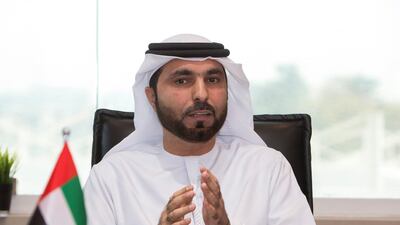A senior prosecutor has called for the construction of juvenile rehabilitation centres to help young offenders avoid a life of crime.
Mohammed Ali Rustom, Dubai's Advocate General, called for a renewed focus on those under the age of 18 who risked becoming repeat offenders.
Mr Rustom, who heads the family and juvenile prosecutions division, said increasing social media use was partly to blame for leading youngsters astray.
He also said parents must be reminded of their own responsibilities towards their children, ensuring they were properly supervised at all times.
“The number and nature of cases involving juvenile offenders is not yet alarming,” said Mr Rustom.
“But in my view it’s still important that juvenile rehabilitation centres be built to give youngsters the best chance of amending their ways.”
The number of criminal prosecutions involving juveniles has actually dropped in Dubai over recent years.
In 2017, a total of 347 young offenders were charged compared with 262 last year. Out of those cases, records for 2017 show 44 offenders were female while 46 young women were charged in 2018.
Under current law, judges have fairly limited choice when sentencing young offenders.
Those found guilty can either be sent to a juvenile prison in Al Aweer - which only caters for the most serious of crimes - or be released.
Mr Rustom believes a third option, that of rehabilitation centres, would give wayward youngsters a much better chance of reforming their ways.
In an interview with The National, Mr Rustom also suggested that improving police officer training could help deal with repeat young offenders.
He said specialist teams, consisting of two or three officers at each station, should be created to help identify problem individuals early. More timely intervention, he argued, could steer teenagers away from crime.
“Properly trained officers at each station could help target and track problem individuals,” he said.
“Dealing with this age group early could boost their chances of amending their ways.”
Mr Rustom said social media, poor parental supervision and unsuitable films all had a part to play in negatively influencing child behaviour.
He urged social workers and school teachers to redouble their efforts to keep youngsters away from unsuitable online content.
And he claimed parents must be on hand to offer advice to their children, while at the same time allowing the freedom to make some choices for themselves.
“The role of social workers in schools must be increased and parents must pay more attention to their children,” he said.
“Parents should always be present to listen, explain and offer advice. But youngsters also need room to explore within certain boundaries in order to develop their own character.
“I mainly hold parents responsible for their children’s offenses. They have to supervise what they watch, where they go and who they befriend.”


